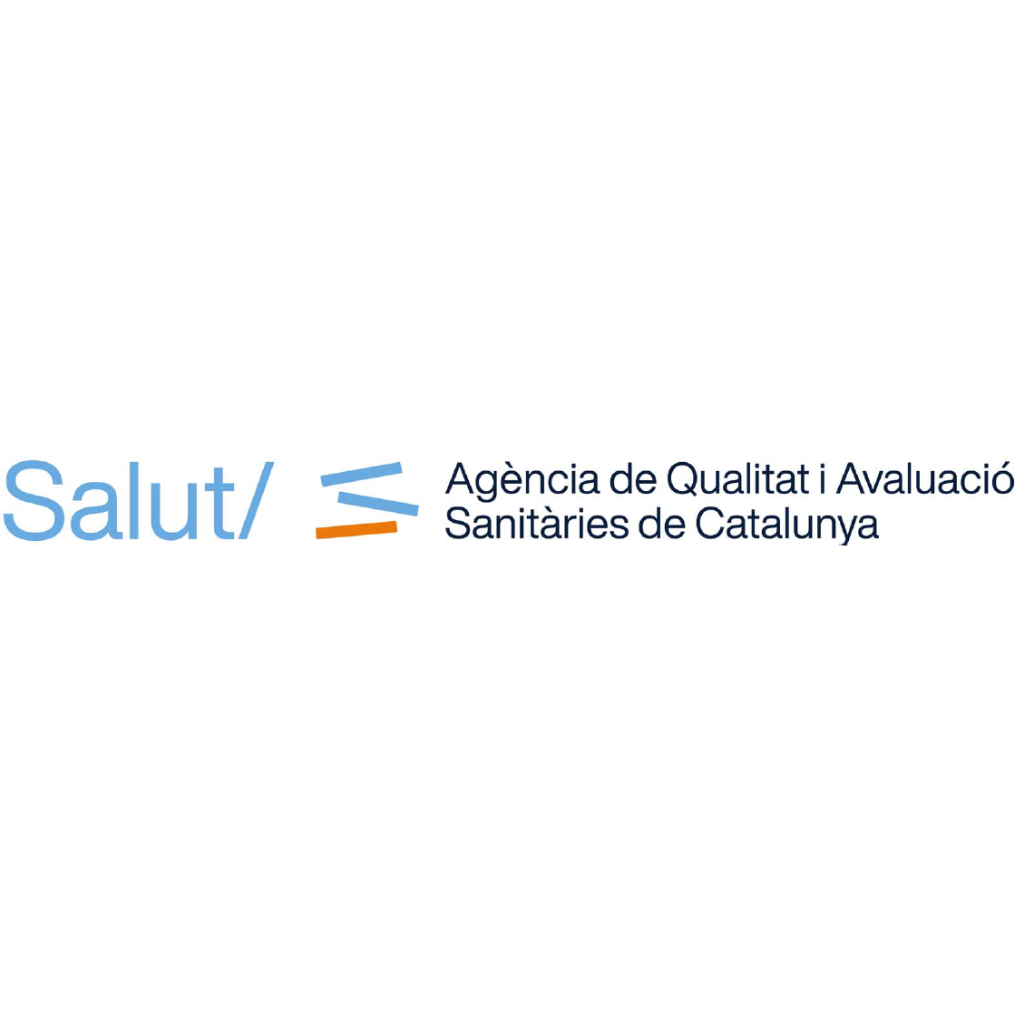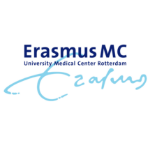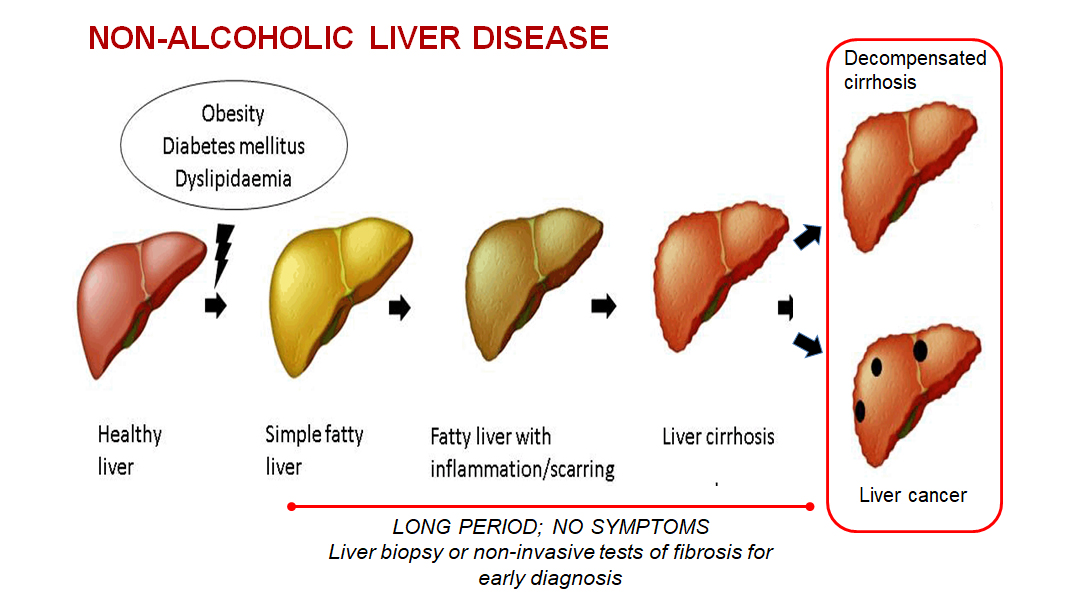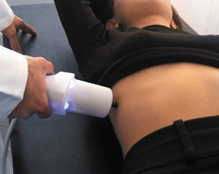Screening for liver fibrosis: a population-based study in European countries
LiverScreen develops FibroScan, a non-invasive device to scan for common liver conditions that typically show no symptoms until the disease is very advanced. This EIT Health project tests 3 000 patients with FibroScan, to prove the effectiveness of screening that could save lives and money by catching liver problems before cirrhosis or cancer set in.
Origins
It is predicted there will be an explosion of patients with chronic liver disease in the near future due to the current epidemics of obesity and diabetes. Chronic liver disease is usually silent until progression to liver cirrhosis and cancer is inevitable, and the chances for survival are lower. Advanced liver disease is costly for healthcare systems and poses an enormous emotional burden for patients and families. LiverScreen offers a solution for early intervention.
Team
The project involves a multi-disciplinary, international team of doctors, nurses, economists, business planners, statisticians and quality controllers. The healthcare teams are from France, Netherlands, and Spain. The health economists, quality governance team and statisticians are from public institutions in Spain, with ECHOSENS providing the equipment and analysis of screening images. Health economists are building future business models.
The project
The LiverScreen project develops a personalised screening program to identify persons with pre-symptomatic, significant chronic liver disease among the general population. Liverscreen uses FibroScan (pictured, right), a non-invasive medical device, to measure liver stiffness that correlates with the degree of liver fibrosis. FibroScan has high potential to quantify liver fibrosis in persons with early stage and pre-symptomatic liver disease, when available treatments could halt progression or even favor regression of liver fibrosis.
A total of 3 000 subjects from the general population will be included in this project (2 000 in Spain, 500 in France and 500 in Netherlands). Subjects are evaluated by a study nurse in a primary care centre, where medical history, physical examination, blood tests and the FibroScan test are performed. Subjects presumed to have liver fibrosis, because of values detected by FibroScan or abnormal liver tests, are subsequently evaluated in a hepatology consultation at the reference university hospital linked to the primary care centre, to confirm the diagnosis and offer specific treatment.
The LiverScreen project will assess not only the prevalence of liver fibrosis in the general population but also will identify subgroups of patients at risk of chronic liver diseases, to help develop a targeted, population-based screening program for liver disease.
Impact
- For patients: Identification of patients at risk of developing liver disease can mean early and more cost-effective treatment – and therapy to prevent further development.
- For society: Improved forecasting permits better allocation of resources and healthcare policy to address the problem of liver disease in both primary care and hospital settings.
- For healthcare professionals: education and training of staff with specialist skill sets needed for the future in the health care systems.
Why this is an EIT Health project
An effort to identify the prevalence of early signs of liver disease within the adult population is in keeping with EIT Health’s goal of improving healthcare for all Europeans. LiverScreen aligns with the Focus Areas of “Care Pathways”, because early detection can improve treatment, and to a certain extent, “Real World Data”, because it will build a database indicating at-risk groups.
Members

CLC/InnoStars: Spain
Partner classification: Municipality / City, Tech Transfer, Clusters, Other NGOs
The Agency for Health Quality and Assessment of Catalonia is a public legal entity subject to private law, under the auspices of the Generalitat of Catalonia’s Health Services Department which serves public policy. The mission of AQuAS is to promote knowledge and know -how aimed at improving the quality, safety and sustainability of the Catalonian healthcare system.
Agency for Health Quality and Assessment of Catalonia
Agency for Health Quality and Assessment of Catalonia, Carrer de Roc Boronat, 81, 08005 Barcelona, Spain
Key Activities in Social Innovation
Healthcare provision, Payers
Key Activities in Education
Healthcare professional education/training


CLC/InnoStars: France
Partner classification: Tech Transfer, Clusters, Other NGOs, Hospital / University Hospital
Partner type: Core Partner
We are a teaching hospital with a European dimension globally recognized. Our 39 hospitals attended each year 8 million sick people: consultation in emergency hospitalizations during scheduled or home hospitalization. We provide a public health service for all, 24/24, and it is for us both a duty and pride.
Assistance Publique - Hôpitaux de Paris
Assistance Publique - Hôpitaux de Paris, 1 Avenue Claude Vellefaux, 75010 Paris, France


CLC/InnoStars: Spain
Partner classification: Academic, Education, Research
The University of Barcelona is the most intensive university in research in Spain. Our university has a great capacity for innovation in various fields, of which the health sector stands out both due to the amount and the quality of the outcomes produced by faculties such as the Faculty of Medicine and Health Sciences, the Faculty of Pharmacy and Nutrition or the Faculty of Psychology. Our activity within the EIT Health projects is often enriched and sometimes dominated by the technology and/or knowledge created in the Faculties of Biology, Chemistry, Physics, Mathematics and Computer Science or even Fine Arts. We have also several Research Institutes that merge multidisciplinary teams working on topics as diverse as Neuroscience, Complex systems, Biomedicine, etc. as well as a couple of Technology Transfer Institutes such as CREATIO https://www.ub.edu/creatio/en/, the first Academic Center for the Production and Validation of Advanced Therapies in Spain, and Farmatec http://www.ub.edu/sdm/in_index.htm, a Service of Development of Medicines under GMP regulation
University of Barcelona
University of Barcelona, Gran Via de les Corts Catalanes, 585, 08007 Barcelona, España
Key Activities in Research and Developement
https://web.ub.edu/en/research
Key Activities in Corporate Innovation
https://web.ub.edu/en/the-university
Key Activities in Business Creation
https://startub.ub.edu/en/community/incubated-companies/
Key Activities in Education
https://web.ub.edu/en/learn


CLC/InnoStars: Spain
Partner classification: Research
Partner type: Linked/Affiliated Party
The Clinic Foundation is a non-profit institution created in May 1989. Its mission is to promote, manage and perform biomedical research and provide teaching in the health sciences field, concentrating particularly on the areas of expertise of the Clinic Hospital of Barcelona and the fields in which the Hospital operates either individually or in partnership with other organisations.
Fundació Privada Clínic per la Recerca Biomèdica
Fundació Privada Clínic per la Recerca Biomèdica, Carrer del Rosselló, 149, 08036 Barcelona, Spain
Key Activities in Business Creation
Technology Transfer, Testing & Validation
Key Activities in Education
Medical faculties, Healthcare professional education/training


CLC/InnoStars: Belgium-Netherlands
Partner classification: Education, Research, Hospital / University Hospital
Erasmus University Medical Center Rotterdam (Erasmus MC) is the largest university medical center in The Netherlands with around 16,500 employees, and a top referral hospital for a region of about five million inhabitants. A unique infrastructure bringing multidisciplinary research and healthcare together at one location allows Erasmus MC to excel in fundamental research, fast translation of findings into the clinic including first-in-man testing and clinical implementation, and epidemiological studies.
Technical university medical center: Technology is at the core of the new strategy. Erasmus MC focuses on the use of technology and data science to foster innovation in a variety of fields – from medical instruments and devices, minimally invasive surgery, imaging and image analysis, information technology and smart data technology to artificial intelligence, machine learning and biomedical technology.
Erasmus University Medical Centre Rotterdam
Erasmus University Medical Centre Rotterdam, Dr. Molewaterplein 40, 3015 GD Rotterdam, The Netherlands
Key Activities in Research and Developement
Life Sciences, Social sciences / health economics, Clinical research
Key Activities in Social Innovation
Healthcare provision
Key Activities in Business Creation
Technology Transfer
Key Activities in Education
Medical faculties, Healthcare professional education/training


